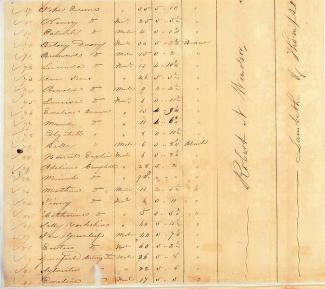
With the recent popularity of affordable, at-home DNA testing, many Black Americans are, for the first time, getting a chance to learn a bit about the heritage from which their ancestors were forcibly separated during slavery. But they can only learn so much.
The process of enslavement split enslaved Africans from their communities, but slave traders and owners took it even further - they purposely prevented those enslaved from holding on to their history and cultures. Slave owners made sure enslaved people were divided into mixed groups of different cultures, languages, and traditions, making collaboration, communication, and potential escape that much harder.
They also purposely separated families and discouraged cultural activity; dancing was prohibited in some contexts, for example, but enslaved people found ways around restrictions like this to retain what bits of culture they could.
Very few records were kept with details about enslaved people, their families, or their origins, and were often difficult to access. Even enslaved people’s names - often the most important piece of data for doing research - weren’t consistent.
As a result, over the generations, historical knowledge was lost or erased, and many Black Americans can only trace their family lines back to slavery, if even that far.
But according to Kathleen Brandt, a genealogist, “DNA is a tool to use for our family history,” but it’s just one part of the story. “It is not the answer but gives us [the] right direction where we need to be researching.” Ancestry kits have far more data on people with European ancestry than anyone else, so for non-White people, they only give so much information.
But because of new technology and pioneering young people like Teriyana Cohens, a new part of the story may soon be revealed. It may well become part of the narrative.
Cohen and fellow math and computer science students Michelle Medici, Pam Qian, and Patrice Miller presented their new research, titled “Digitizing Court Records: Creating an Interactive History of Enslaved Peoples' Incarceration,” at the Simmons University Undergraduate Symposium this past summer.
Their project “digitizes incarceration records of enslaved people from the 18th and 19th centuries and mak[es] the data available on an interactive website” so that it can be accessible to anyone. Their research is a huge step forward in the often-difficult task of cataloging and accessing data about enslaved people.
A number of other ventures have begun undertaking similar projects. Archivists in Sierra Leone are attempting to digitize records kept there, which could provide a crucial link between American records and African ones. Enslaved: Peoples of the Historic Slave Trade is another project attempting to pull together records from a variety of sources and systematize them, as is the Freedmen’s Bureau Project.
These kinds of endeavors are crucial for rebuilding the history that Black people were separated from during slavery. With passionate researchers and new technology, Black Americans may soon be able to find information about great-great-grandparents - or maybe even African ancestors - in just a few clicks.